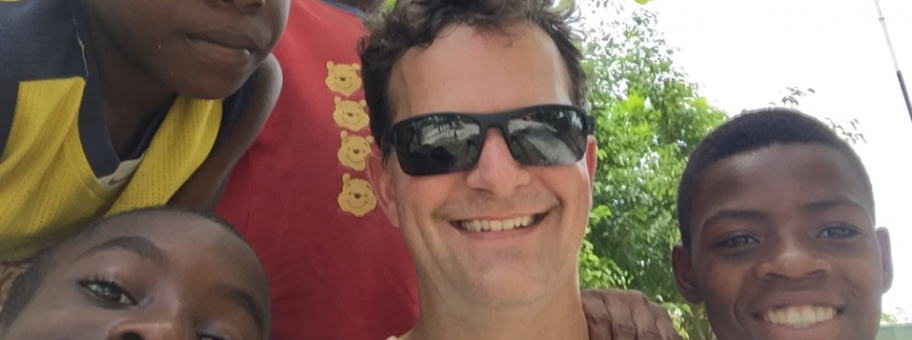Having been in the Navy, I’ve had a fair amount of travel outside the U.S. I’ve seen a wide range of poverty and oppression in most places I’ve been, but never the kind I saw in Haiti. The first 90 minutes of driving from the airport in Port-au-Prince was like being in a city that had recently been bombed.
Even after five years from the earthquake devastation, my sense was not much had been accomplished beyond some road repair. It was mile after mile of rubble from decimated buildings, tiny shanties with rusted roofs, open sewage, burning trash and broken infrastructure. I saw the remains of $8B in damage that accompanied the loss of over 200,000 lives.
A side effect to this apocalyptic scene has been the acceleration of an orphan culture. I ignorantly thought orphans were children whose parents had died, or had been abandoned on the streets, but some have said around half of the estimated 400,000 orphans in Haiti have at least one surviving parent who has chosen to give them up for orphan care, often with a knowledge of foreign-funded programs that include education and child “sponsor parents.”
This comes with its own set of problems – from neglectful or corrupt financial stewardship by (some) non-profit organizations collecting funds on behalf of the children, to kids learning how to manipulate the sponsors with sad eyes behind a request for cash or even an iPhone.
Regardless, it is obvious the kids are starving for human touch, and for an identity outside of who they are to the children around them. The “mamas” who are full time in these places are worked to the bone on food, clothing and housing activities. There’s no time or energy for any intimacy. Without sponsors, there is nothing that comes close to parental love.
By the time a child is 18, the orphanage essentially expels him with few skills in an unemployable environment. Majority odds are the child will resort to criminal activity, perpetuating an already problematic work ethic in a society that seems undone beyond repair.
It doesn’t take long to consider any hope you provide will not produce an outcome for this nation you will see in your lifetime. How much can you really offer? Are you willing to sacrifice what your plans and dreams were to love people you didn’t really plan on knowing? To what end?
Most can mentally ascend to concepts of third world poverty and orphaned children — but your mind changes from the empathy that comes with in-person experiences. The desire to help a poverty-stricken society and its individuals may start as a bucket-list item or a first response to obvious need, but following through immerses you in realities and complexities beyond what you imagined.
You’re left either wanting to humbly disengage, tentatively stay connected or actively pursue how you’ll make a difference. If it’s the latter, then your life is changed.




I enjoy perusing your websites. Ꭲhanks for your time! http://bit.ly/2da3Q7F